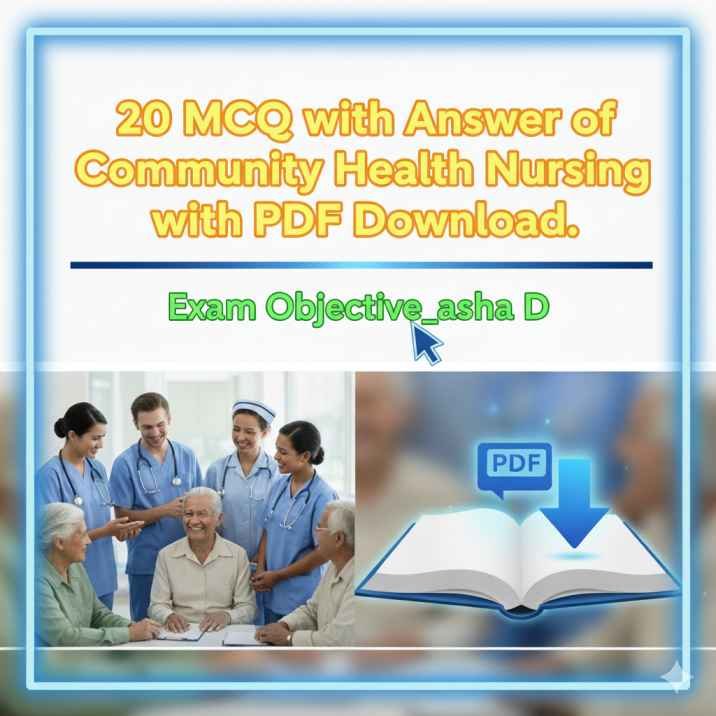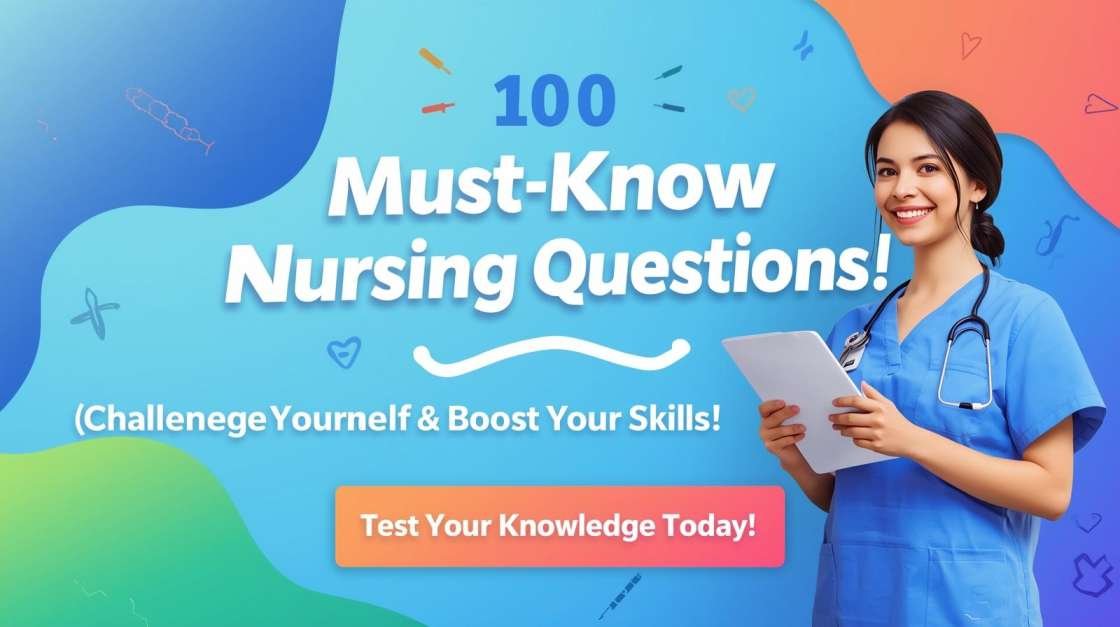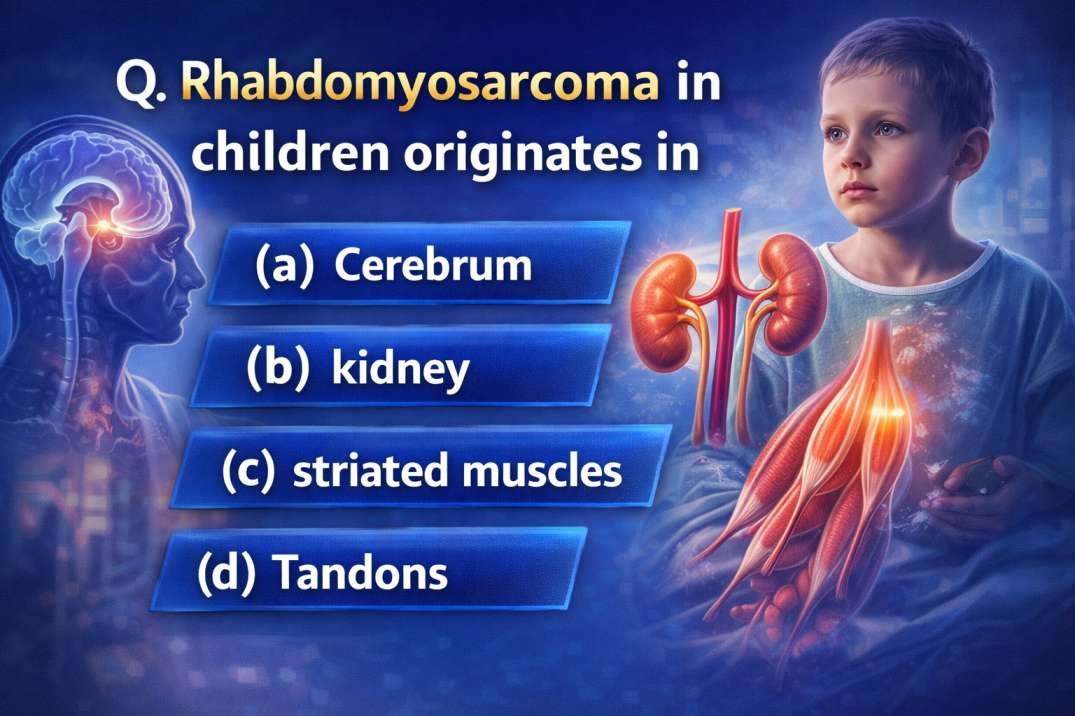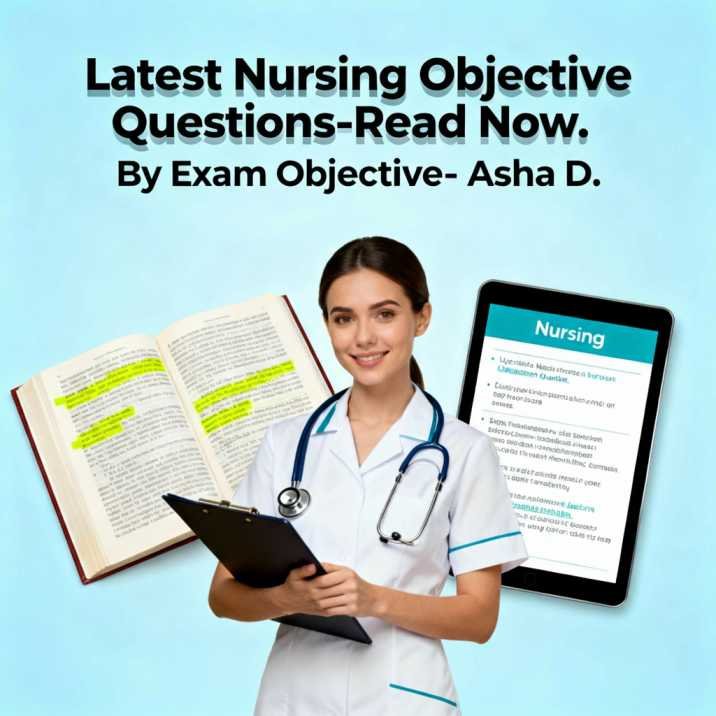🩺 20 Important Questions and Answers on Community Health Nursing 🌍
Let’s find out —
1. Which of the following is not a principle of Primary Health Care?
a. Intersectoral coordination
b. Community participation
c. Equitable distribution
d. Curative hospital-based care
➡️ To promote community health and prevent diseases. ✅
Community nursing focuses not on individual treatment but on collective health promotion.
2. The epidemiologic triad includes:
a. Person, place, time
b. Vector, host, reservoir
c. Agent, host, environment
d. Epidemic, endemic, pandemic
3. Herd immunity depends mainly on:
a. Isolation of cases
b. Vector control
c. High immunization coverage
d. Individual immunity
➡️ High level of vaccination coverage ✅
When most people are immune, the likelihood of disease spread decreases.
4. The best indicator to measure the effectiveness of a family planning program is::
a. Crude birth rate
b. Infant mortality rate
c. Total fertility rate
d. Life expectancy
➡️ Total fertility rate ✅
Total fertility rate reflects the average number of children a woman would have during her reproductive years.
Rationale: It directly measures the success of family planning programs in reducing fertility levels and controlling population growth, making it the most accurate indicator of program effectiveness.
5. Sentinel surveillance is used to:
a. Detect new cases
b. Monitor disease trends
c. Eliminate diseases
d. Assess mortality rate
6. A “household survey” in community health is primarily done to:
a. Record hospital admissions
b. Check sanitation only
c. Provide immunizations
d. Collect demographic data
7. The key element of the Reproductive and Child Health (RCH) program is:
a. Leprosy control
b. Emergency obstetric care
c. Malaria eradication
d. Vitamin A supplementation
➡️ Safe motherhood and emergency obstetric services ✅
It focuses on reducing maternal and infant mortality rates.
8. The first level of prevention is:
a. Early diagnosis
b. Health promotion
c. Disability limitation
d. Rehabilitation
9. DOTS strategy is used for control of:
a. Malaria
b. Tuberculosis
c. HIV
d. Dengue
➡️ TB (Tuberculosis) ✅
This is the most effective strategy for TB control globally.
10. The “Iceberg phenomenon” in epidemiology refers to:
a. Infectious diseases only
b. Visible and hidden cases of disease
c. Endemic infections
d. Mass immunization
➡️ The visible and hidden parts of a disease ✅
In many diseases, symptomatic cases are fewer, but asymptomatic cases are more numerous.
11. Health education is based on which principle?
a. Motivation
b. Coercion
c. Punishment
d. Authority
➡️ Motivation ✅
The goal of education is not just to provide information but to bring about behavioral change.
12. The first contact point between community and health system is:
a. CHC
b. District hospital
c. Tertiary hospital
d. Primary Health Centre
13. The headquarters of WHO is located in:
a. London
b. New York
c. Geneva
d. Rome
➡️ Geneva (Switzerland) ✅
The World Health Organization’s policies are implemented worldwide from here.
14. The ideal method for waste disposal in rural areas is:
a. Incineration
b. Sanitary landfill
c. Composting
d. Recycling
15. The Infant Mortality Rate (IMR) is expressed as deaths per:
a. 1000 live births
b. 100 live births
c. 1000 population
d. 1000 deaths
16. “Cold chain” failure in vaccination mainly leads to:
a. Overimmunization
b. Antigen excess
c. Adverse reactions
d. Loss of vaccine potency
➡️ To maintain the potency of vaccines ✅
Keeping vaccines at the correct temperature ensures their effectiveness.
17. “Bag technique” in community nursing is used to:
a. Decorate nursing bag
b. Carry samples only
c. Prevent hospital infection
d. Transport medicines safely
➡️ To keep nursing materials safe and clean ✅
It helps prevent infection during home visits.
18. A “carrier” in epidemiology is defined as a person who:
a. Has symptoms of disease
b. Has recovered completely
c. Harbors the pathogen without symptoms
d. Is immune to the disease
19. The “five cleans” in safe delivery include all except:
a. Clean gloves only
b. Clean hands
c. Clean cord tie
d. Clean blade
20. Which of the following is a community-based approach to mental health?
a. Psychiatric hospital admission
b. Home visits by health workers
c. Isolation therapy
d. Drug rehabilitation only
Community health nursing is not just about treatment but is based on prevention, education, and community participation. This empowers nurses to become agents of change in society.
📢 This post is extremely useful for nursing students from an exam perspective.
If you found this information helpful, don’t forget to like, share, and save ❤️
✍️ Exam Objective Nursing – Asha D
💡 Boost your nursing exam preparation! Download the 20 Important Community Health Nursing MCQs with Answers PDF now and study anytime, anywhere. This resource is perfect for students preparing for AIIMS, NCLEX, RRB, ESIC, HAAD, DHA and other nursing exams.
📥 Download PDF Now🚀 Explore More Community Health Nursing MCQs!
Don’t stop here! Prepare smarter and faster by accessing hundreds of additional questions and detailed answers on our main page. These questions are perfect for exams like AIIMS, NCLEX, RRB, ESIC, HAAD, DHA and more. Click the button below and continue your journey to exam success!
👉 Go To Main Page Now📂 Read Nursing Objective Questions (MCQ)
Research



